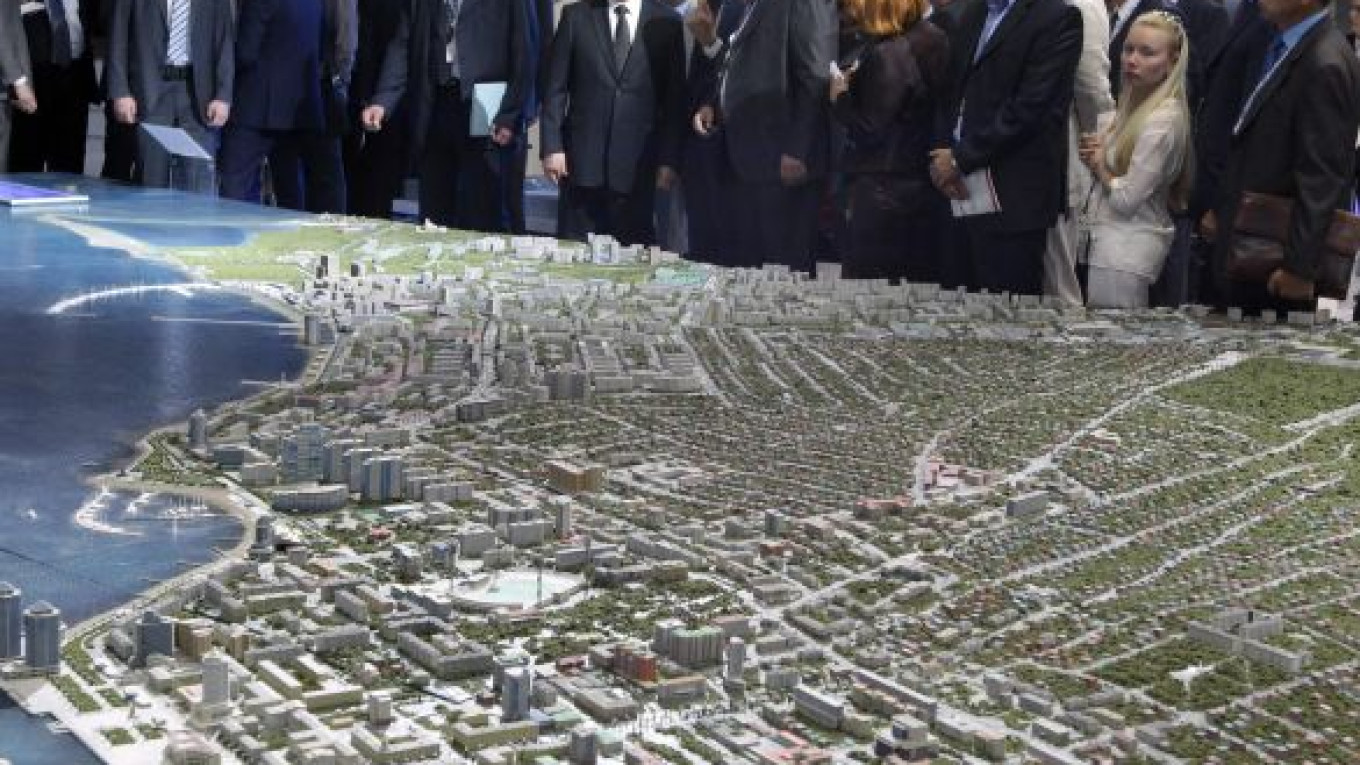A government agency registered the domain name Putin-2012.rf last week only to revoke its application two days later, stirring speculation in the media over the possible start of Prime Minister Vladimir Putin's presidential campaign.
No similar domain name was registered for President Dmitry Medvedev, which some observers viewed as an indication that he will not run for re-election in 2012. But canceling the registration was interpreted as a sign that he and Putin have not yet determined who of the two will be the candidate for — and the likely winner of — the presidential race.
The Federal Guard Service, whose duties include providing information security for state bodies and officials, said Saturday that it was calling off applications for nine web site names, including Putin-2012.rf, in the new Cyrillic domain zone because it might be considered electioneering.
"The service registers domain names for government bodies, including the presidential administration, the government, ministries and the State Duma, but does not participate in preparing and carrying out election campaigns," the agency's press service said, Interfax reported.
The service attempted to register Putin-2012.rf on Thursday, the last day for the so-called priority registration of .rf domain names, opened only for state bodies, media outlets, nongovernmental organizations and trademark holders.
Putin's spokesman Dmitry Peskov denied any link between the elections and the registration of the Putin-2012.rf domain name, calling it an ordinary precaution against cybersquatting.
"This is a necessary measure aimed at preventing malicious use of domain names linked to popular personalities," Peskov said Saturday, according to Reuters. But he conceded to Gazeta.ru on Thursday that Putin was likely aware of the domain name's registration.
The incident was likely staged to stir discussion over the upcoming elections, said Grigory Melkonyants, deputy executive director of Golos, Russia's only independent election watchdog.
"This was done intentionally, to provoke a discussion over the elections," he said by telephone Sunday.
Watchdogs and the media do not closely monitor registration of domain names, which is why there would have been no media hype unless someone intentionally tipped them off about the new domain, Melkonyants said.
Speculation about 2012 benefits Medvedev's camp because it hints that he and Putin have not arrived at a decision about the elections, Melkonyants said.
The fuss over the domain name also confirmed that the Internet will play an important role in the 2012 campaign, regardless of its participants.
"The role of the Internet in politics is widely recognized," said Dimitrie Ross, director of SPB Media Bureau, a Moscow-based firm specializing in strategic communications in social media.
The Internet has already changed the face of politics in the West, perhaps most recently with the 2008 election campaign of U.S. President Barack Obama, which succeeded largely because of extensive use of social media and the Internet in general.
Russia has yet to catch up with Western trends, but there is definitely progress in the regions, Ross said. Internet connection speeds in various regions will determine to what extent politicians will succeed in using the Internet to campaign, he added.
The World Wide Web played little role in previous campaigns for the presidency, but that is bound to change, he said.
"Russian politicians on the federal level seem to think they are big enough that they will be voted for either way. This dynamic, however, is changing," Ross said.
Medvedev, the locomotive behind Russia's modernization drive, has been attempting to present himself as a tech-savvy leader, in particular by starting a Twitter account and a LiveJournal blog.
But Putin has managed to outdo Medvedev on the Internet without the help of social media so far. A search for "Vladimir Putin" on Russia's leading search engine, Yandex.ru, produces 14 million results versus 11 million for “Dmitry Medvedev." Googled in English, Medvedev gets almost 1.5 million less hits than Putin.
A Message from The Moscow Times:
Dear readers,
We are facing unprecedented challenges. Russia's Prosecutor General's Office has designated The Moscow Times as an "undesirable" organization, criminalizing our work and putting our staff at risk of prosecution. This follows our earlier unjust labeling as a "foreign agent."
These actions are direct attempts to silence independent journalism in Russia. The authorities claim our work "discredits the decisions of the Russian leadership." We see things differently: we strive to provide accurate, unbiased reporting on Russia.
We, the journalists of The Moscow Times, refuse to be silenced. But to continue our work, we need your help.
Your support, no matter how small, makes a world of difference. If you can, please support us monthly starting from just $2. It's quick to set up, and every contribution makes a significant impact.
By supporting The Moscow Times, you're defending open, independent journalism in the face of repression. Thank you for standing with us.
Remind me later.


